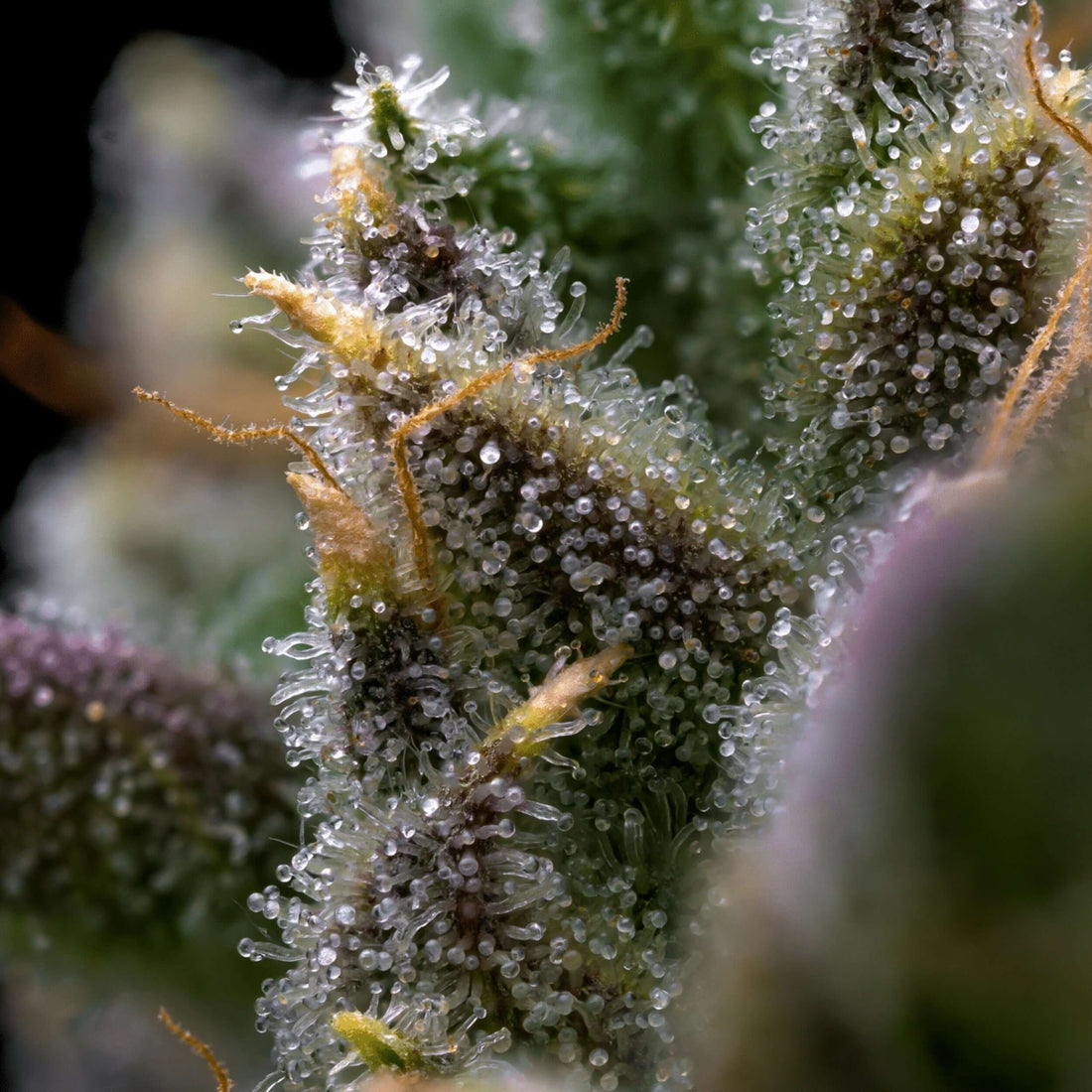Introduction
Tetrahydrocannabinolic Acid (THCA) is quickly becoming one of the most talked-about cannabinoids in the cannabis industry. As the market evolves, so does our understanding of the cannabis plant's various components. THCA is a compound found in raw cannabis and plays a crucial role in the overall cannabis experience. In this guide, we’ll dive deep into what THCA is, how it’s different from THC, and why it’s gaining popularity among cannabis enthusiasts.

What is THCA?
THCA stands for Tetrahydrocannabinolic Acid, a non-psychoactive cannabinoid found in raw and live cannabis plants. Unlike THC, THCA does not produce intoxicating effects when consumed in its natural state. Instead, it’s known for its potential wellness benefits and federally legal status, and is often sought out by individuals who prefer the benefits of cannabis legally, without the need for a medical card. THCA is the precursor to THC and naturally converts into THC when heated through a process known as decarboxylation.
The Origins of THCA
THCA forms as the cannabis plant grows. It originates from the precursor cannabinoid CBGA (Cannabigerolic Acid), which transforms into different cannabinoids, including THCA, as the plant matures. The amount of THCA present in a cannabis strain varies based on its genetics and growth conditions. Typically, freshly harvested cannabis flowers have high THCA levels before they are dried, cured, or processed.

THCA vs. THC
While both THCA and THC come from the same plant, they have key differences. The primary distinction is that THCA is non-psychoactive, meaning it doesn't produce the "high" commonly associated with cannabis. This is because the THCA molecule has an extra carboxyl ring that prevents it from binding effectively with CB1 receptors in the brain. However, when THCA is exposed to heat (through smoking, vaping, or cooking), it loses this carboxyl ring in a process called decarboxylation, transforming into THC, which is psychoactive.
Potential Benefits of THCA
Aside from being federally legal in the United States. THCA is gaining attention for its potential therapeutic properties as well. While research is still ongoing, some studies suggest that THCA may have anti-inflammatory, neuroprotective, and antiemetic (anti-nausea) properties. Additionally, THCA’s non-psychoactive nature makes it an attractive option for individuals who want to explore the benefits of cannabis without experiencing the "high." However, it’s important to note that these potential benefits are still under investigation, and more research is needed to fully understand THCA's effects.

How to Use THCA
There are several ways to incorporate THCA into your wellness routine:
-
Smoking THCA Flower: When you smoke or vape THCA-rich flower, the heat decarboxylates the THCA, converting it into THC. This provides the psychoactive effects typically associated with cannabis. Smoking is one of the most common methods, allowing users to experience the transformation of THCA to THC in real-time.
-
Raw Cannabis Juicing: One of the most natural ways to consume THCA is by juicing raw cannabis leaves and flowers, which keeps THCA in its non-psychoactive form.
-
THCA Tinctures: Tinctures allow for easy dosing and can be consumed directly or added to food and drinks without converting THCA to THC.
-
THCA Edibles: Consuming edibles made with THCA preserves its non-psychoactive properties, offering a way to ingest THCA without converting it into THC.
-
THCA Concentrates: Concentrates like live resin and diamonds are rich in THCA and can be vaporized or added to edibles. Keep in mind that using heat will convert THCA into THC, resulting in psychoactive effects.

Why is THCA Gaining Popularity?
The rise in THCA's popularity is due to its non-psychoactive nature and its potential wellness benefits. As consumers become more informed about the different cannabinoids found in cannabis, many are seeking out THCA for its purported health-supporting properties without the intoxicating effects of THC. This makes THCA products ideal for those who want to experience the benefits of cannabis while maintaining mental clarity.
Conclusion
Understanding THCA and its unique properties is essential for anyone exploring the diverse world of cannabis. As research into cannabinoids progresses, THCA continues to emerge as a compound with promising potential. If you’re looking to experience the non-psychoactive benefits of cannabis, THCA might be the perfect fit for you. Check out our extensive range of THCA products and find the one that aligns with your wellness goals.
Ready to explore THCA? Discover our THCA product line and experience the benefits firsthand at www.stonies.shop
